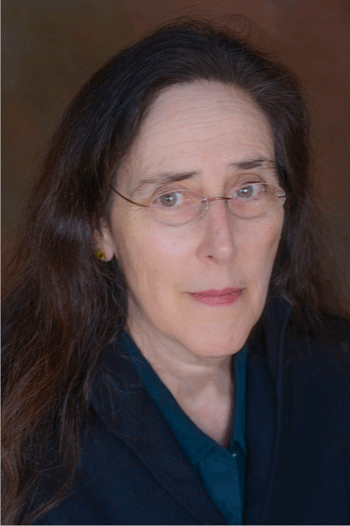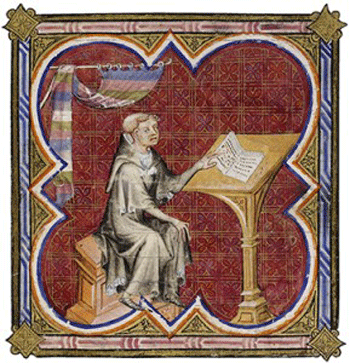Sleuthing rare manuscript’s history leads to prestigious award
The American Musicological Society's prestigious Claude V. Palisca Award is being shared by a faculty expert on the Nazi-era confiscation of musical cultural property.

November 19, 2015

Carla Shapreau, winner of 2015 Claude V. Palisca Award. (Photo by Judy Lepire)
Carla Shapreau, a faculty member at Berkeley Law whose research involves the Nazi-era plunder of musical cultural property and the restitution of those possessions, is the recipient with two co-authors of this year’s Claude V. Palisca Award, the American Musicological Society announced this week.
The award honors an outstanding scholarly edition or transcript in the field of musicology published during the previous year. Shapreau also is a senior fellow in the Institute of European Studies and a curator at the Department of Music.
The Ferrell-Vogüé Machaut Manuscript, published by the University of Oxford’s Digital Image Archive of Medieval Music, is an analysis of the manuscript, a rare work by Guillaume de Machaut, a medieval French composer, poet and scholar, and a reconstruction of its long history. It was confiscated by the Nazis from its owner, Georges Wildenstein, in Paris on Oct. 30, 1940, and shipped to Germany. Later, it was taken to the German countryside for safekeeping. In the summer of 1945, the U.S. Army discovered this 14th century musical, literary and artistic work hidden in a Bavarian monastery, and in 1949 it was returned to its true owner.
Shapreau’s contribution to this publication traces the dramatic fate of the manuscript during World War II and the immediate post-war years. Her co-authors are Lawrence Earp, a professor of musicology at University of Wisconsin-Madison, and Domenic Leo, an adjunct assistant professor of art history at Duquesne University.
“The Nazi-era looting and post-war rescue of this medieval codex first came to my attention through an obscure reference while I was conducting research in the U.S. National Archive on music-related losses during the Nazi era,” says Shapreau. “Reconstructing the larger history of this manuscript involved locating and analyzing additional archival records in the U.S., France, Germany and the U.K.”

Digital image from manuscript (DIAMM, University of Oxford, reproduced courtesy of James E. and Elizabeth J. Ferrell)
In Q & A with Berkeley News earlier this year, when, in honor of the Campanile’s centennial, Shapreau gave a lecture about the 175,000 bells seized by the Nazis from towers in Europe during World War II, she outlined her research mission and its importance.
“As a result of the Nazi era,” she said in the interview, “musical manuscripts, printed books, musical instruments and other musical objects were confiscated, stolen, lost, abandoned, sold under duress or otherwise misplaced. My efforts are directed at review and analysis of archival records and other information to better understand the nature, scope and gravity of these losses, and their impact on individuals, culture and society.”
That work involves “a focus on provenance — the history of ownership and possession, and its importance to contemporary transactions where transparency may be an issue,” she added. “Access to archival records that relate to this era, and public dissemination of information, is essential for historical reconstruction.
“In some instances, this may lead to information that is relevant to the possible return of an object. In other cases, this may not be possible, but filling a gap in our historical knowledge increases historical accuracy, and with it a sense of justice.”
Shapreau says she hopes this award-winning research on the Machaut codex will provide new insights into this manuscript’s history, as well as its “continuing vitality and cultural importance.”
“The Palisca award also facilitates a recognition that archival access for historical research is essential to progress,” she adds, “and this topic remains in the forefront of contemporary challenges to researchers such as myself.”